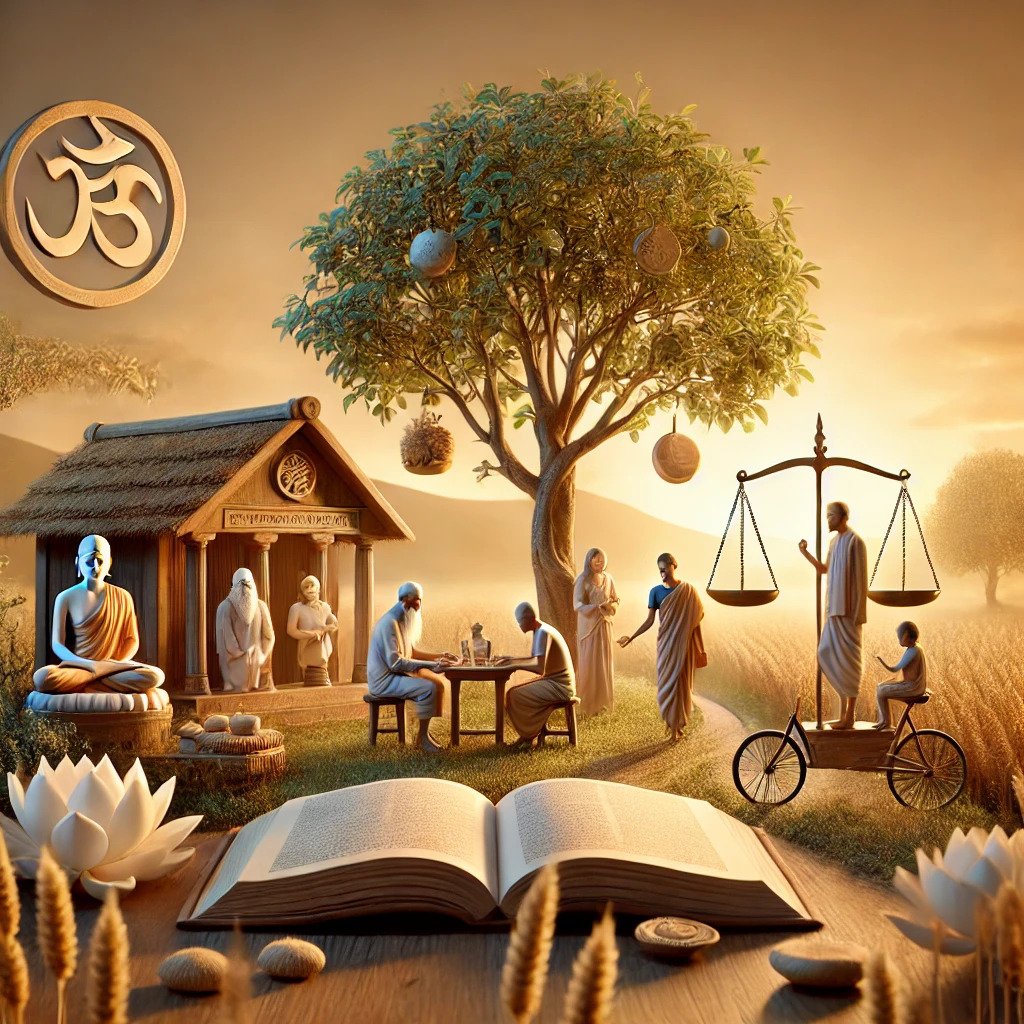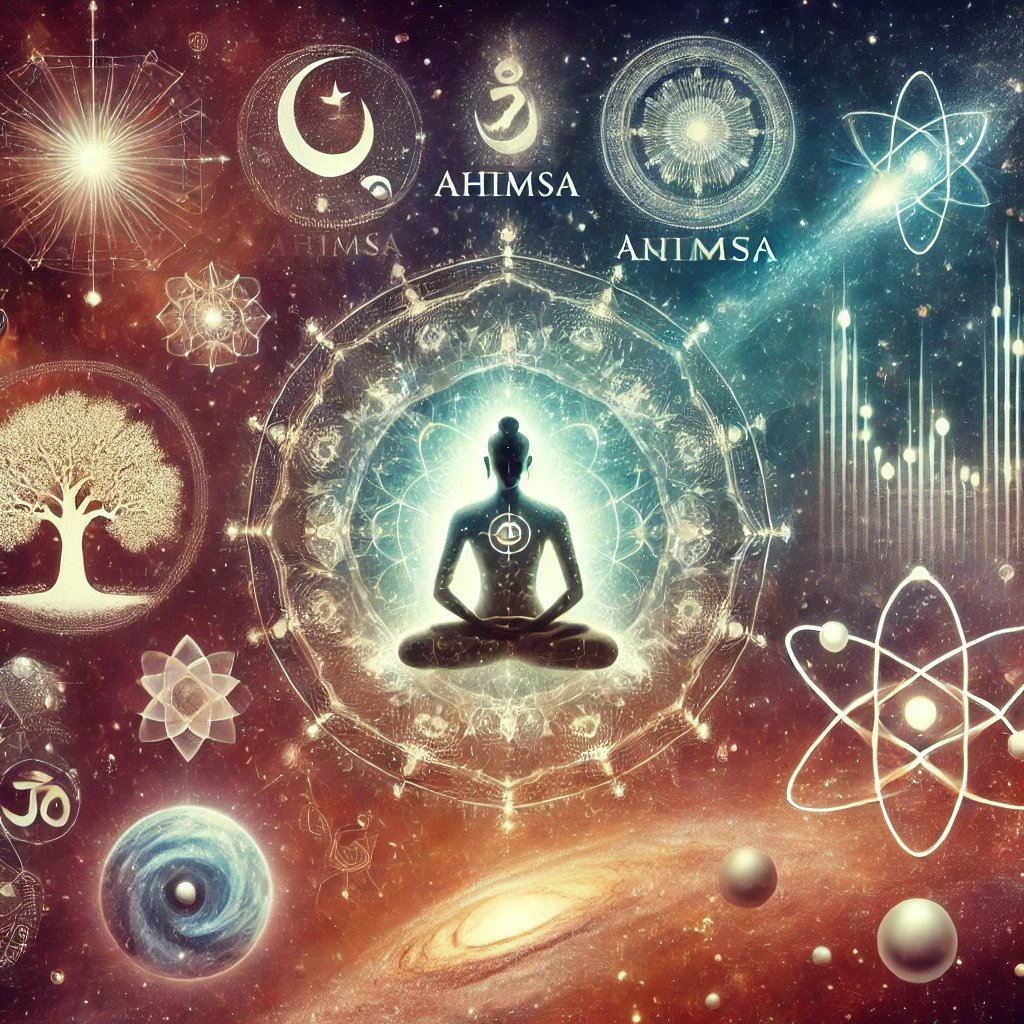In today's fast-paced world, where material pursuits often overshadow deeper meaning, many people find themselves seeking something more—a path that guides them not only spiritually but in every aspect of their daily lives. Jainism, one of the oldest religions in the world, offers precisely that. However, to call Jainism merely a religion would be to overlook its profound impact on every facet of life. Jainism is more than rituals and doctrines; it is a comprehensive way of life that offers timeless wisdom, ethical living, and a path to inner peace.
The Ethical Foundation: Living with Compassion
At the core of Jainism is the principle of Ahimsa—non-violence. While Ahimsa is often associated with religious practice, in Jainism, it extends far beyond that. It is a daily commitment to living with compassion towards all beings, including animals, plants, and even the earth itself. This philosophy encourages Jains to adopt a vegetarian or vegan lifestyle, to be mindful of the environment, and to interact with others in a spirit of kindness and respect. In a world facing environmental crises and widespread violence, the Jain way of life offers a blueprint for sustainable and compassionate living.
Anekantavada: Embracing Multiple Perspectives
Jainism teaches Anekantavada, the doctrine of manifold viewpoints. This principle encourages Jains to appreciate the complexity of life and to respect the diverse perspectives of others. In practice, this means fostering tolerance, open-mindedness, and a willingness to see the world from different angles. In a globalized world where cultural and ideological clashes are common, Anekantavada provides a valuable lesson in empathy and coexistence.
Aparigraha: The Art of Simple Living
In an age where consumerism often defines success, Jainism offers a counter-narrative through the principle of Aparigraha—non-possessiveness. Jain philosophy teaches that true happiness comes not from accumulating material wealth but from living a life of simplicity and contentment. Aparigraha encourages Jains to live within their means, to share with others, and to reduce their dependence on material goods. By embracing simplicity, Jains find freedom from the endless cycle of desire and consumption that plagues modern society.
Meditation and Self-Discipline: Cultivating Inner Peace
While meditation is often associated with spiritual practice, in Jainism, it is a way of life. Jains engage in regular meditation and self-discipline to cultivate inner peace, self-awareness, and spiritual growth. The practice of Samayika—a daily meditation ritual—helps Jains center themselves, detach from worldly distractions, and focus on their higher purpose. This disciplined approach to life fosters mental clarity, emotional resilience, and a deep sense of fulfillment that transcends the temporary pleasures of the material world.
Jain Festivals: Celebrating Life's Journey
Jain festivals, such as Paryushana and Mahavir Jayanti, are not just religious observances but opportunities for self-reflection, community bonding, and personal growth. During these festivals, Jains engage in fasting, prayer, and charitable activities, reinforcing their commitment to the Jain way of life. These celebrations serve as reminders of the principles that guide their daily actions and decisions, helping them stay connected to their spiritual goals in the midst of everyday life.
Jainism in the Modern World: A Path to Balance
In a world where stress, anxiety, and dissatisfaction are all too common, the Jain way of life offers a path to balance and harmony. By integrating principles like Ahimsa, Anekantavada, Aparigraha, and regular meditation into their lives, Jains find a sense of purpose and tranquility that is often missing in contemporary life. Whether one is seeking to improve their relationships, contribute to a more just and peaceful society, or find personal fulfillment, the teachings of Jainism provide a practical and holistic approach to achieving these goals.
Conclusion: Embracing Jainism as a Way of Life
Jainism is not just a set of beliefs or rituals; it is a way of living that permeates every aspect of life. By embracing the principles of Jainism, individuals can lead a life that is not only spiritually fulfilling but also ethically sound, socially responsible, and environmentally sustainable. In this way, Jainism offers more than religious guidance—it provides a comprehensive framework for living a meaningful, balanced, and compassionate life.
At Jain Enlightened, we believe in sharing the teachings of Jainism as a way of life that can benefit everyone, regardless of their religious background. By integrating these timeless principles into our daily lives, we can create a world that is more peaceful, just, and harmonious.


